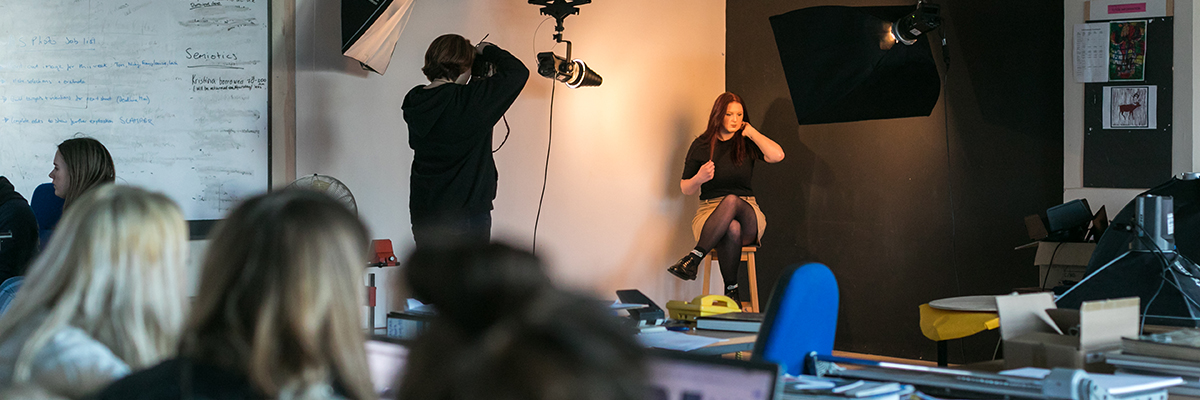

|
||||||
Photography is an ever-changing medium that stretches across fields including press and editorial, advertising, fashion, fine art, the natural world and scientific recording. You will have the opportunity to investigate and refine a range of skills in both contemporary and traditional technologies through the exploration of portraiture, landscape, still life, documentary and experimental imagery, in the studio and on location. From this, you’ll create your own photographic-based imagery in response to a variety of exciting and stimulating projects. Trips are organised to galleries hosting photographic exhibitions across the country plus practical-based trips to local venues for night photography and street photography.
Five GCSEs at grade 4 or above including English Language and Mathematics. You should have studied either an art or design based GCSE and achieved a minimum of grade 4 in the related subject. It may be possible to gain entry to the course without a GCSE in an art or design-related subject by submitting a portfolio showcasing your practical work at interview.
Year 1 is workshop-based and you will develop your camera skills and understanding of photography through a number of set projects. Initially, you will learn how to use your camera functions and settings, how to process black and white film and make enlargements in the darkroom, how to work in a photographic studio with professional and industry-standard lighting equipment and how to work on-location with flash and at various times of the day including night photography. Your work will need to be recorded in a sketchbook, which will include critical studies and contextual research, planning, contact sheets practical work and evaluations. Year 2 consists of two main components: The Personal Investigation (60%). This component of work consists of a major, in-depth contextual and practical-based project that enables you to further develop your ideas and interests in photography. Your practical work is supported by a minimum of 1,000 words, which can be presented in a variety of ways. You will produce both a sketchbook and research work, which will be assessed alongside a portfolio of prints and outcome.Externally Set Assignment (40%). This component requires you to produce preparatory work in response to set questions, develop ideas, research and experiment and plan a self-directed outcome. You will need to create an informed and competent response within a controlled test environment.
You will study the history and theory of photography through workshops and projects together practical based lessons. Lessons comprise of lectures, demonstrations, discussions, practical assignments, study trips and visits to exhibitions. You will also be expected to keep a work journal for each of the units, in the form of sketchbooks. In these you will record evidence of the development of ideas including reference to the work of others.The work journal is also a vital tool in supporting and stimulating the artistic process and has a major role in the production and development of your photography, offering a context for exploration and discovery. In addition to participation in formal classes, you will also be expected to continue your studies and practice in your own time.
Your work is assessed individually in tutorial sessions, group discussion, presentations and by formally assessed unit submissions. Final assessment is carried out by your lecturers, then moderated by an external moderator appointed by the examining board.
Students are expected to provide their own sketchbooks to record workshop and practical evidence and it is desirable to have your own DSLR camera. Staff can advise before purchasing.
A good A Level pass in a range of subjects will assist you to progress to Higher Education or appropriate employment.